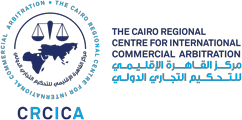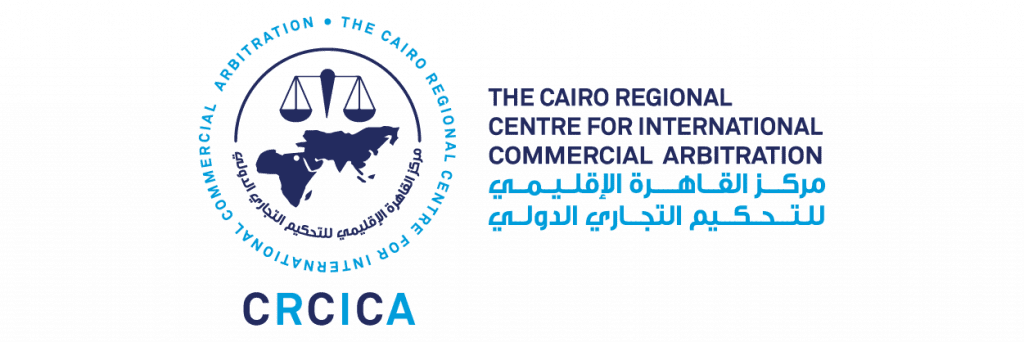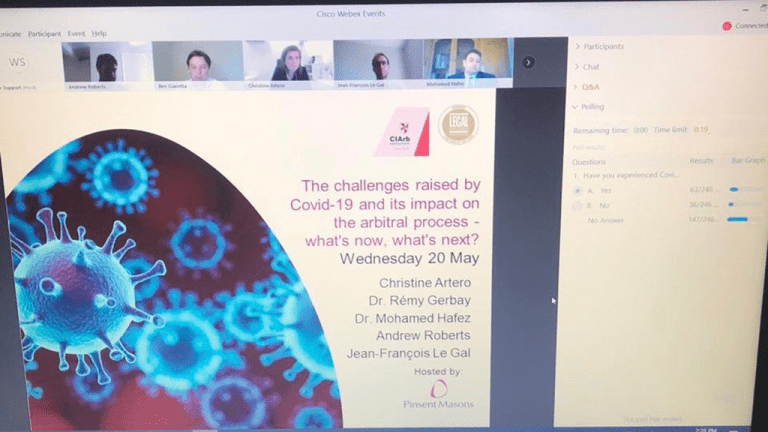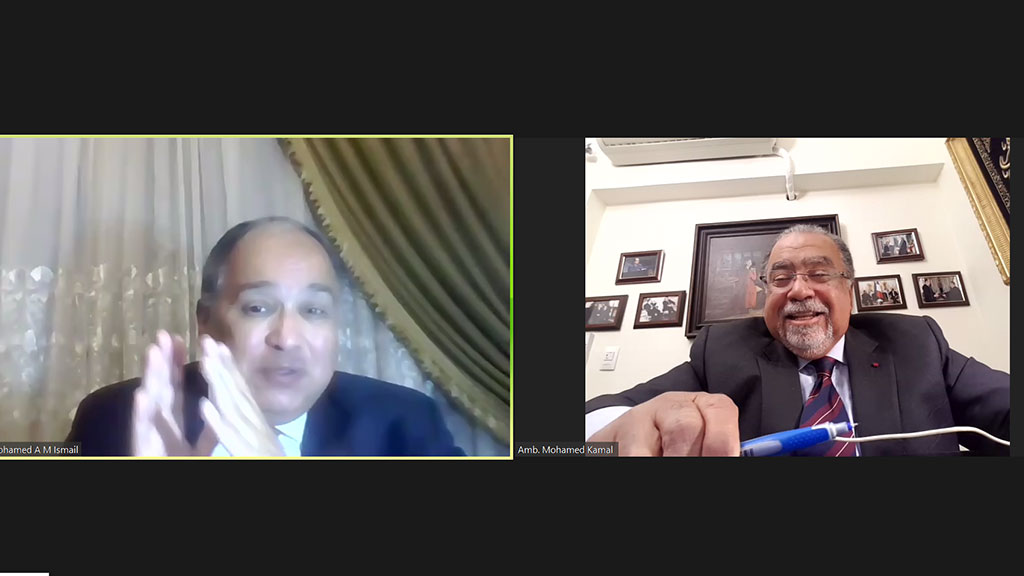On 20 May 2020, Dr. Mohamed Hafez, Legal Advisor to the Director of CRCICA, was a speaker at the International Arbitration Webinar on “The Challenges Raised by COVID-19 and its Impact on the Arbitral Process – What’s Now, What’s Next” organized by the CIArb London Branch and hosted by Pinsent Masons LLP. The interactive Webinar aimed at comparing the respective views, approaches – and forecasts – of counsel, arbitrators, arbitral institutions and third party funders across the globe regarding the challenges raised by Covid-19, its impact on the arbitral process, and what comes next.
The Webinar was attended by 300 participants and was moderated by Mr. Jean-François Le Gal, Partner at Pinsent Masons LLP. The new Chair of the London Branch welcomed the other speakers from across the world: Mrs. Christine Artero, Independent Arbitrator in Singapore; Dr. Rémy Gerbay, Partner at MoloLamken LLP in Washington; Mr. Andrew Roberts, Investment Manager at third party funder Augusta Ventures in London.
The speakers used the historical perspectives of the 2008 financial crisis to consider a possible future post coronavirus. The current crises differs given that its focus may be the allocation of risk and the concept of force majeure. Speakers recognized the considerable cost saving impact of virtual hearing and highlighted the need for tribunal IT literature and skills.
Dr. Hafez focused on the problems affecting arbitration cases and its participants (parties, arbitrators and arbitral institutions) as a result of the COVID-19 outbreak. He referred to the joint statement titled “Arbitration and COVID-19” issued in 16 April 2020 by leading arbitral institutions, including the CRCICA, in affirmation of the institutions’ commitment to work together for providing an effective response to the challenges caused by the COVID-19. Dr. Hafez also highlighted CRCICA’s measures for conducting arbitration proceedings during the COVID-19. Such measures include the use of videoconferencing and virtual hearings where CRCICA Arbitration Rules allow the possibility of examining witnesses and expert witnesses via videoconference. CRCICA’s high-tech hearing facilities enable the best use of digital technologies for working remotely without undue delay of arbitration proceedings. Dr. Hafez concluded by providing practical recommendations for effective videoconferencing.
At the end of the event, poll questions were raised to the participants while speakers answered questions sent by participants during the webinar.





